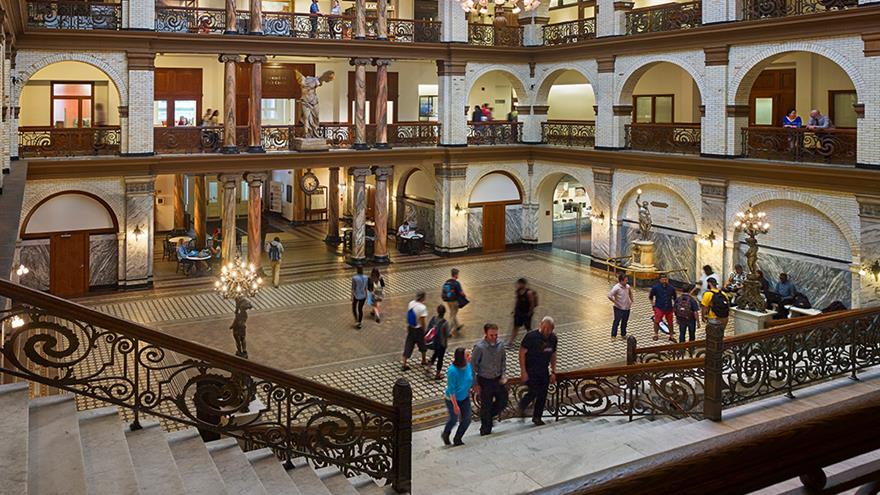Drexel Surpasses Fundraising Goal, Raises $120.7 Million for Fiscal Year 2016

- Heard Around Campus — February 2026
- Drexel University Food Lab Partnership Brings Spice to New York City
- Early-Career Hiring Remains Active but Increasingly Selective, According to Drexel’s 2026 College Hiring Outlook
- Drexel University's Recent Academic Activity: Sponsored Opportunities and New Partnerships From Fall 2025

Drexel closed fiscal year 2016 by raising $120.7 million in outright gifts and pledges, surpassing the University’s goal by $700,000 and beating FY2015 by $5.3 million. This marks the third year in a row of achieving a record-breaking fundraising total.
“It’s humbling to see the enormous generosity of so many loyal alumni, friends and supporters,” said Drexel President John A. Fry. “I’m even more gratified because our donor support tells us that we have a compelling vision for the University that taps into their own passions, and that they have confidence in our leadership to execute this vision.”
Drexel secured 15,316 donors, representing a four-year high and 2,000 new donors. Two campaign events that were key to this year’s success were the “Day of Giving” and “Why I Give.” During the inaugural “Day of Giving,” more than 2,800 donors gave $713,514. The “Why I Give” faculty and staff campaign raised $917,000 from more than 1,400 donors.
“While it’s our benefactors to whom we owe the most, the success of our campaign also is a tribute to the power of Drexel’s deeply collaborative approach to fundraising,” said David L. Unruh, senior vice president for Institutional Advancement.
The largest gift to the University during the fiscal year came from longtime philanthropists Dana and David Dornsife, widely known for their humanitarian efforts. The couple donated $45 million to the School of Public Health, which was named in their honor.
Thanks to a generous $6 million gift from philanthropist Raymond G. Perelman, the Perelman Center for Jewish Life is on schedule to open this fall. The three-story structure will open to a population of approximately 1,000 Jewish students and will house Drexel Hillel, the campus chapter of the world’s largest Jewish student organization. The Center will feature event space for 100 or more people, a chapel, meeting rooms, student lounges, offices for Drexel Hillel, a kosher kitchen and kosher food services, as well as a large outdoor patio for socializing and construction of a Sukkah.
Renovations have also begun on the Korman Center in the heart of Drexel’s campus, after an $8 million gift from the Hyman Korman Family Foundation and another $8 million in matching University funds. The building renovations will result in state-of-the-art classroom space and modern, comfortable lounges. The renovations will also create a classic campus green in the open space in front of and around the Korman Center, a popular student hangout known as the “Quad.”
Drexel’s finances also remained strong for the fiscal year. The endowment has grown to $663.4 million, a 23.7 percent increase in just five years. In July, Moody's Investor Service assigned an A3 rating to Drexel's proposed issuance of $115 million in revenue funding bonds — a refinancing that will save more than $1 for every $5 borrowed. Moody's cited a number of factors in assigning an A3 rating, including the University's "consistent operating surpluses and growth in financial resources." Moody's also highlighted other strengths, including Drexel's diverse array of academic offerings, improved fundraising and positive operating performance. Standard & Poor's also gave Drexel an A rating, citing many of the same financial strengths.
Drexel News is produced by
University Marketing and Communications.